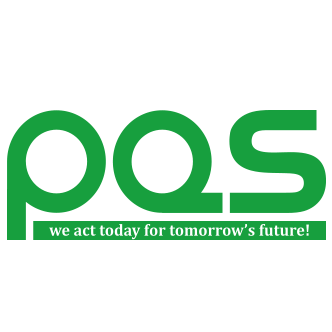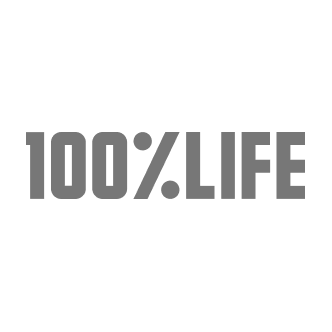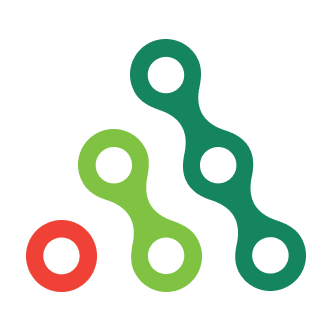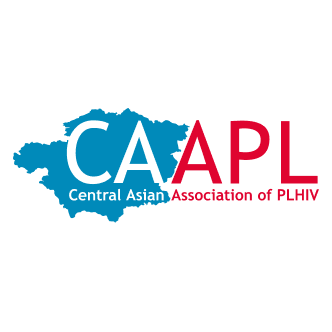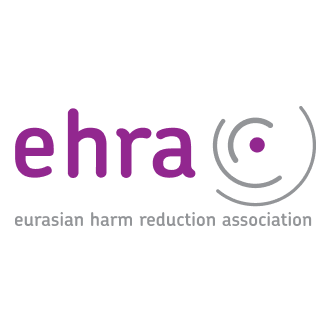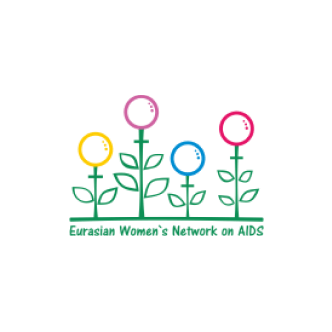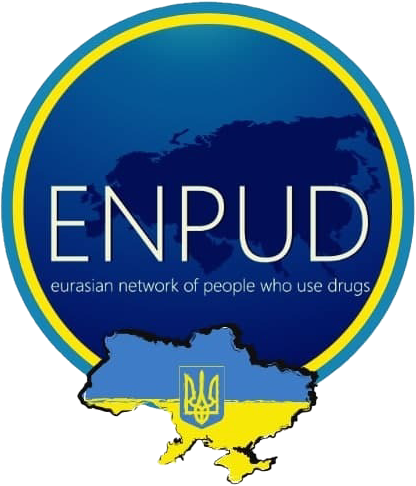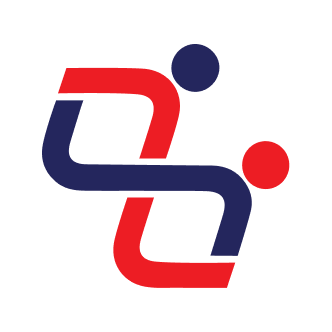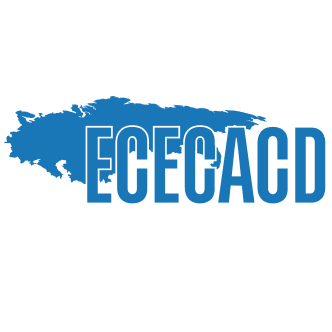Region
01. HIV care cascade
ACTIVITIES
REGIONAL: Establish and maintain a virtual regional professional network to update testing strategies and simplify testing, diagnostic and linkage to care, and for information dissemination on evidence for HTS policy revisions in countries of the region
Progress to date
Within the sub-regional meeting in Kazakhstan in November 2022, the establishment of the virtual network was initiated. The concept and purpose of the network were presented to the participants. Within the network, participants (members) will be able to exchange experiences, ask questions, take part in discussions, share files, collaborate on documents, exchange and learn from each other on HIV testing.
During 2023, there were three meetings of virtual professional network on testing held – on March 22, June 12, and November 28. Members of the network include specialists from Moldova, Kazakhstan, Ukraine, Georgia, Kyrgyzstan, as well as representatives from ITPC EECA and WHO Centre for Primary Health Care, WHO European Office and PAS Center. At the meetings, the issues of simplified testing approaches and alignment of testing strategies with the WHO recommendations are discussed, as well as progress in the implementation by countries of National Action Plans to achieve the “first 95”.
During 2024, there were three meetings of virtual professional network on testing held – on March 21, on June 18, and on November 20. The network unites representatives of 8 EECA countries involved in testing in healthcare facilities and AIDS centers.
In addition, the Regional-level policy dialogue to showcase the experience of countries that have adopted the new HTS strategies was held on September 10-12, 2024 in Chisinau, Moldova. The main objectives of the event were to share best practices in revising HIV testing strategies and discuss ways to further improve HIV testing services in line with WHO recommendations in EECA countries. The event was attended by coordinators of the National HIV Programs and specialists responsible for laboratory diagnosis of HIV infection, monitoring and testing quality at the national level from the following countries: Moldova, Ukraine, Kazakhstan, Armenia, Azerbaijan, Kyrgyzstan, Uzbekistan, Tajikistan, Georgia, representatives of the WHO Regional Office and Alliance for Public Health, Ukraine, representatives of WHO country office, UNAIDS, PCIMU, NAPH. During the event, the achievements and challenges of the participating countries regarding the simplification of the HIV testing algorithm and its decentralization were presented. Moldova’s experience in using rapid tests and establishing the diagnosis during one day with the initiation of ARV treatment was shared
REGIONAL: Conduct an initial sub-regional meeting in Kazakhstan given the WHO Geographically Dispersed Office (GDO) on primary care is based in Almaty, involving Georgia, Kazakhstan, Kyrgyzstan, Moldova and Uzbekistan.
Progress to date
On 28-30 November 2022, in Almaty, Kazakhstan the sub regional meeting on the decentralization of HIV testing services and the simplification of HIV algorithms was organized by WHO Regional Office for Europe in partnership with PAS.
The main aims of the meeting were to discuss ways to improve HIV testing services in line with WHO recommendations and to exchange countries’ best experiences of revising their HIV testing strategies. The event was attended by: representatives of the ministries of health responsible for HIV testing services, HIV programme managers, technical-level specialists from the health institutions responsible for the national HIV testing services from Kazakhstan, Kyrgyzstan, Moldova, Georgia and Uzbekistan and SoS project implementers and partners.
During the meeting, were presented and discussed: The Regional Action plans for ending AIDS and eliminating viral hepatitis and STIs 2022-2030 and HIV testing related Actions, the experience of the countries in simplifying the HIV testing algorithm and its decentralization, the main gaps, challenges and opportunities for the expansion of HIV testing services especially for key and vulnerable populations etc. Also, the representatives of the countries had the opportunity to elaborate the country plans for implementing WHO guidance on HIV testing services
REGIONAL: Develop regional operational guidance on decentralization and rapid initiation of HIV testing and treatment based on country experience
Progress to date
Terms of Reference is under development to hire the consultant who will develop regional operational guidance based on country experience from Moldova and Kyrgyzstan.
WHO has held the analysis of HIV testing guidelines in 6 countries of EECA – Georgia, Kazakhstan, Kyrgyzstan, Moldova, Tajikistan, Uzbekistan.
The operational guidelines based on experience of Moldova and Kyrgyzstan were translated into English and sent to WHO Euro for revision. The final versions will be presented during the Regional level policy dialogue to showcase experience of countries that have adopted the new HTS strategies, that will be organized during the Q2_Q3 2024.
Regional operational guidance on decentralization and rapid initiation of HIV testing and treatment based on country experience from Moldova and Kyrgyzstan was developed, translated into English and presented during the Regional level policy dialogue to showcase experience of countries that have adopted the new HTS strategies, which took place in September 2024 in Chisinau, Moldova.
REGIONAL: Provision of technical assistance to national CSOs to reduce the price of treatment and diagnostics in countries of the EECA region
Progress to date
Draft reports on procurement monitoring of CD4 and VL tests as well as the rapid tests for HIV have been prepared and a session on diagnostics and ARVs price reduction advocacy was organized and held during the National Consultation in Moldova.
According to the project work plan, the annual meeting of the Eurasian Community for Access to Treatment (ECAT) was held in Almaty on September 27–29, 2023. The Eurasian Community for Access to Treatment (ECAT) sent an open letter to the pharmaceutical company ViiV Healthcare with a request to expand the scope of the license agreement for cabotegravir with the Medicines Patent Pool, adding at least Armenia, Azerbaijan, Belarus, Georgia, Kazakhstan and Moldova.
Analysis of the procurement of rapid tests for HIV diagnosis was held in Moldova and Kyrgyzstan and is available at the links (in Russian): Moldova, Kyrgyzstan.
Analysis of the procurement of test systems for monitoring HIV treatment was held in Moldova and Kyrgyzstan and is available at the links (in Russian): Moldova, Kyrgyzstan.
ECAT meeting was held on December 4–6 in Tbilisi, Georgia.
Reports on procurement monitoring of CD4 and VL tests as well as the rapid tests for HIV implemented in 2023 are published.
According to the analyzed data, during 2022-2024, three countries – Kazakhstan, Kyrgyzstan and Moldova – gained an economy of more than 17 mln USD (or 28%) in the procurement of ARVs. Since 2021, Kazakhstan succeeded in decreasing the price for DTG by 58%, Kyrgyzstan decreased the price for TLD by 28-32%, and Moldova also decreased the price for TLD by 27%.
REGIONAL: Provide technical support to SEE RCN and national SEE CSOs to advocate for ART procurement price reductions in five (5) countries of SE Europe
Progress to date
According to the project work plan, the annual meeting of the Eurasian Community for Access to Treatment (ECAT) was held in Almaty on September 27–29, 2023. The Eurasian Community for Access to Treatment (ECAT) sent an open letter to the pharmaceutical company ViiV Healthcare with a request to expand the scope of the license agreement for cabotegravir with the Medicines Patent Pool, adding at least Armenia, Azerbaijan, Belarus, Georgia, Kazakhstan and Moldova.
In Kazakhstan, comprehensive justification documents were prepared to demonstrate the benefits and necessity of transferring procurement responsibilities to the Sole Distributor. The legal rationale was presented to a wide range of stakeholders at the working meeting “On expanding access to essential medicines for people living with HIV by amending the legal acts regulating the procurement of medicines” held in Q4 2024.
In Kyrgyzstan, an advocacy strategy was developed based on an analysis of the procurement of ARV tests, HIV diagnostic and treatment monitoring products procured with public funds and humanitarian supplies funded by the Global Fund (GF) and UNDP. Official letters were also sent to the State Enterprise “Kyrgyzpharmacy” and the GF, UNDP outlining potential measures to optimize procurement processes and reduce the cost of ARVs and diagnostic tests. In addition, a number of informal discussions were held with the Kyrgyzpharmacy SE, the Republican Center for HIV/AIDS Control and GF/UNDP on further optimization of procurement strategies, expansion of the range of ARVs and diagnostic tests procured with public funds, and the possibility of reducing the cost of certain ARVs and diagnostic tools. A meeting was also held with experts engaged by the GF and the GF/UNDP to prepare for the transfer of GF grant management to national agencies.
In Moldova, to identify potential obstacles and opportunities for the introduction of a procurement mechanism through international procurement agencies, a comprehensive review of the current legislation on procurement of medical devices and medicines was conducted. An assessment of the current clinical protocol was conducted to develop recommendations for the inclusion of ART drug resistance monitoring. These recommendations were presented to the CCM HIV Working Group, and efforts are ongoing to advocate for their inclusion in the 2025 revision of the National HIV Protocol.
ECAT meeting was held on December 4–6 in Tbilisi, Georgia.
Reports on procurement monitoring of CD4 and VL tests as well as the rapid tests for HIV implemented in 2023 are published.
REGIONAL: Support the development and functioning of a regional platform to share experience and best practices that ensure access to quality assured treatment and testing systems
Progress to date
According to the project work plan, the annual meeting of the Eurasian Community for Access to Treatment (ECAT) was held in Almaty on September 27–29, 2023. The Eurasian Community for Access to Treatment (ECAT) sent an open letter to the pharmaceutical company ViiV Healthcare with a request to expand the scope of the license agreement for cabotegravir with the Medicines Patent Pool, adding at least Armenia, Azerbaijan, Belarus, Georgia, Kazakhstan and Moldova.
Analysis of the procurement of rapid tests for HIV diagnosis was held in Moldova and Kyrgyzstan and is available at the links (in Russian): Moldova, Kyrgyzstan.
Analysis of the procurement of test systems for monitoring HIV treatment was held in Moldova and Kyrgyzstan and is available at the links (in Russian): Moldova, Kyrgyzstan.
ECAT meeting was held on December 4–6 in Tbilisi, Georgia. More than 20 activists from countries across the EECA region participated in the meeting. The meeting was visited by representatives of MPP, pharmaceutical companies like ViiV, Gilead. At the meeting there were presentations from countries outlining news in access to treatment and regulatory documents, and presentation of Andrew Hill from the Liverpool University on the issues of treatment with Lenokapavir and Cabotegravir.
REGIONAL: Contribute to the transformation of the perception and understanding of the importance of PrEP as one of the key HIV prevention approaches at all levels and for all key populations in the countries of the EECA region and SEE sub-region
Progress to date
ECOM in partnership with WHO regional office for Europe analyzed five national PrEP protocols (Armenia, Kazakhstan, Kyrgyzstan, Georgia and Ukraine) and provided Report with recommendations on the steps needed to include PrEP into nationally approved standard package of services.
Promotion and technical support of PrEP programs is one of the main tasks for HIV prevention within the framework of SoS 2.0 project. WHO and ECOM conduct consultations at all levels of stakeholders interested in this process – meetings with representatives of AIDS centers and CCMs, monitoring visits, technical support in the development of Protocols, regional consultations. Based on the analysis of PrEP Protocols and updated WHO recommendations, policy briefs were developed and sent to countries, the purpose of which was to show and not miss the importance of new interventions that can improve PrEP services in countries. The innovative project on LA CAB in Ukraine became the basis for promoting a regional information campaign throughout the EECA region. Results were presented and meetings were held with partners during EACS 2023 in October 2023. On November 21–22, the 1st (Sub) Regional Consultation on PrEP among MSM and trans people in Central Asia was held in Almaty. This is the first consultation of this scale, which brought together all key stakeholders: representatives of the LGBT community of Kazakhstan, Kyrgyzstan, Tajikistan and Turkmenistan, health specialists, international organizations and donors.
In 2024, the 2nd Subregional Consultation on PrEP among MSM and trans* people in Central Asia was held, which was organized by ECOM in partnership with WHO with the support of the SoS project 2.0. This year, the event brought together over 120 stakeholders from 15 different countries and became a platform for an active exchange of experiences and best practices in the field of PrEP among the countries of Central Asia.
REGIONAL: Targeted online sexual / reproductive and mental health intervention for experimenting youths: online services to be provided in a wider range of the countries of the region, as well as offline in one Balkan country
Progress to date
Policy statement, being finalised, will be launched in March 2023. Implementation guide with case studies under development.
APH together with representatives of International Harm Reduction Professional organizations, developed a Joint Policy Statement: “Emerging priorities for the reduction of harms associated with recreational use of psychoactive substances in Eastern, South Eastern Europe and Central Asia” which presents key principles and methods of harm reduction work. Intervention Development and Implementation Guide “Harm Reduction Services for People who Use Psychoactive Substances in Recreational Contexts” was developed. The featured approaches and interventions will be particularly useful for the development of programs and services for young women, men and transgender people from key populations and other young people who experiment with psychoactive substances and navigate through the complexities of their sexual lives and relationships. Translation and adaptation of A blended training course: community mental health interventions in partnership with Mainline is launched and will be available for EECA.
Translation and adaptation of a blended training course: community mental health interventions in partnership with Mainline was launched and is available for EECA.
Organization and support of two shelters (Kyiv and Ivano-Frankivsk regions), one-time support for 4 shelters, material payments to OST clients
Progress to date
60 stationary places for living in shelters in Kyiv and Ivano-Frankivsk regions were organized with support of food, transportation, coverage of a basic package of medicines and household goods, clothing for 405 people from key groups and members of their families. Provided technical support to 4 shelters (Poltava, Cherkasy, Kryvyi Rih and Zhytomyr). 70 payments were made for the payment of rent and provision of proper social and living conditions for the participants of the OST program. 22 payments were made to victims of violence from the Russian occupiers. In total, more than 1,500 people were covered by the program.
This project was supported in 2022.
Provision of support to refugees among KPs and PLHIV as a part of emergency response: Ensuring better access to services for people who have moved to other countries due to the war (incl communication, navigation, case management): launch and sustaining of an international support service (HelpNow), two HelpNow hubs, a web portal with crucial regularly updated information and online medical consultations solution
Progress to date
Activity currently being funded from alternative sources.
After the GF financial support of the initative ended, in 2023 it was supported by Aidsfonds, which allowed for seamless continuation of work in full scale for 10 months; several more months were focused on finalising the program and establishing a Polish-based Foundation “Help Now Hub” to enable the opportunity to further support refugees and other groups requiring relevant support in Poland and beyond. At the same time, even after the funding had ended, the teams partially continue(d) to provide support and maintain the communication/information resources on a volutarily basis.
REGIONAL: Operational researches on the impact of COVID-19 on HIV service delivery
Progress to date
The following studies have been carried out:
- Operational study to assess the ways/channels/mechanisms used by various key populations from different countries to access services, research and communications in times of COVID-19 (Alliance)
- Domestic and other forms of violence among transgender women, sex workers and women who use drugs during COVID-19 pandemic (in Tajikistan and Uzbekistan)
- Monitoring and Documentation of Rights Violations Faced by Trans* People during COVID-19 Pandemic in EECA (in process) (ECOM)
- Health and social well-being of MSM and trans*people in EECA during COVID-19 pandemic (in process) (ECOM)
- Situation Analysis on the Provision of HIV Health Services for Foreign Migrant Citizens in Kazakhstan (Kaz)
- An overview of best practices based on civil society and medical institutions in the Russian Federation in assisting foreign migrants in the Russian Federation and overcoming barriers for migrants to access HIV services (Kaz)
- Webinar Series on Police Responses to Gender-Based Violence against Women Who Use Drugs: Practices and Opportunities;
- Development of interactive materials for women who use drugs in violent settings (EHRA)
02. Removing HR/gender barriers
ACTIVITIES
REGIONAL: Develop regional annual summary reports on rights violations faced by MSM and transgender people in the EECA region
Progress to date
National summary reports for 2022 are developed for five EECA countries: Armenia, Kazakhstan, Kyrgyzstan, Tajikistan and Uzbekistan. They are under design and will be available by the end of January 2023. Regional summary report for 2022 will be finalized in Q1 2023.
Legal environment assessments on MSM and trans people are prepared and published in Kazakhstan, Tajikistan, Kyrgyzstan, Armenia, Uzbekistan. In addition, regional report was published Invisible Voices: Regional report on violations of the right to health of LGBT people in the region of Eastern Europe and Central Asia in 2022.
ECOM has prepared annual national summary reports of human rights violations in 5 countries. The reports consist of three main chapters:
- Legislation;
- Access to human rights;
- Conclusion and recommendations.
All reports are based on the ECOM’s REact monitoring of human rights violations based on SOGI or HIV status.
- National Report on Violations of the Rights of LGBT People in Uzbekistan;
- National Report on Violations of the Rights of LGBT People in Tajikistan;
- National Report on Violations of the Rights of LGBT People in Armenia;
- National Report on Violations of the Rights of LGBT People in Kyrgyzstan;
- National Report on Violations of the Rights of LGBT People in Kazakhstan.
REGIONAL: Support high-level review of legislation for MSM and trans people
Progress to date
ECOM is supporting strategic litigations on human rights abuses among gay men, other MSM and trans people in Armenia. Apart from that, a number of webinars for gay men, other MSM and trans people on meaningful involvement with UN Treaty Bodies, UPR and UN Special Procedures were held, namely: “Universal Periodic Review: Advocacy within a process” on October 20, 2022, “The right to health for LGBT people: submission of alternative reports to UN treaty bodies” on November 18, 2022.
In 2023, ECOM submitted several shadow reports: Kazakhstan to CAT, Tajikistan to CEDAW, Kyrgyzstan to Follow-up procedure CAT, Moldova to UN Human Rights Committee in Advance of its Adoption of the List of Issues, UPR: Uzbekistan, Armenia to the CESCR.
ECOM has prepared annual national summary reports of human rights violations in 5 countries. The reports consist of three main chapters:
- Legislation;
- Access to human rights;
- Conclusion and recommendations.
All reports are based on the ECOM’s REact monitoring of human rights violations based on SOGI or HIV status.
- National Report on Violations of the Rights of LGBT People in Uzbekistan;
- National Report on Violations of the Rights of LGBT People in Tajikistan;
- National Report on Violations of the Rights of LGBT People in Armenia;
- National Report on Violations of the Rights of LGBT People in Kyrgyzstan;
- National Report on Violations of the Rights of LGBT People in Kazakhstan.
REGIONAL: Rapid gender assessment of barriers faced by key populations in access to HIV services using secondary and available data
Progress to date
Gender barriers assessment is under finalization, the report will be published in Q1 2023.
The summary report on Women-led gender assessment: How countries address barriers to HIV services for women living with HIV, sex workers and women who use drugs was published (the assessment took place in 2022 and country reports were available) and can be found in English and in Russian.
REGIONAL: Build the capacity, and raise awareness, of gender equality and rights of key populations in the region
Progress to date
On October 11, 2022, EWNA held a Regional consultation for the EECA countries “Expanding access to mental health services for women living with HIV and women from key populations” in order to identify priority measures for the integration of community-led HIV-related mental and physical health prevention, care and support services for women living with HIV and women from key populations. Based on the findings of the Regional consultation on mental health for women living with HIV and women from key populations in EECA, the EWNA developed the statement “Integration of women’s community-led mental health services into the HIV response in the EECA region”.
EHRA held online training for social workers, outreach workers, psychologists and other experts, providing counselling to people who use drugs (6 modules, 153 people trained from Armenia, Georgia, Ukraine, Moldova, Kyrgyzstan, Uzbekistan, Kazakhstan, Tajikistan and other countries), developed recommendations for organizing and providing harm reduction online.
In 2024, ECOM hold two webinars:
- Presentation of an analysis of national legislation related to LGBT rights and HIV in 12 CEECA countries: key trends;
- Information Campaigns for Promoting LGBTQ+ Rights.
ECOM has prepared the design of the Guide on Monitoring, Documenting, and Responding to Cases of Violations of the Rights of LGBT People. The link is https://ecom.ngo/library/rukovodstvo-monitoring.
REGIONAL: Build the capacity of the community of people who use drugs in the EECA region
Progress to date
For 4 countries (Georgia, Kyrgyzstan, Moldova and Ukraine) in December 2022, EHRA announced RFP – Subgrants: Capacity building in promotion of drug policy reform in Georgia, Kyrgyzstan, Moldova and Ukraine. The winners will be selected in early 2023.
ENPUD Expert Council on Treatment was established: prevention of interruptions in access to treatment, and monitoring the availability of stocks of OST drugs in case of force majeure. ENPUD Expert Council on Rights and Drug Policy was established: direct dialogue with decision-makers in the countries of the region. The Emergency Assistance Fund for the Protection of Human Rights Defenders (ENPUD) was established: organization of departure, starting with the preparation of visas, exit corridor; work with shelters for departure.
On December, 2024 a a pre-conference “Public Health Policing, Drug Policy Reform and Human Rights: Role of Law Enforcement in Access to Health and Harm Reduction in CEECA Countries” in Warsaw, where we brought human rights, law enforcement experts to train/educate CEECA region law enforcement peers.
REGIONAL: Development and submission of reports to UN Treaty Bodies, UN Special Procedures or UPR on human rights violations among KPs (countries TBD)
Progress to date
ECOM in this reporting period has submitted a number of reports to the UN institutions, among which:
- an alternative report on rights violations of trans people in Kyrgyzstan to the UN Committee against Torture (CAT), for the follow up procedure. The report includes cases collected by the ECOM Reactors in Kyrgyzstan.
- an alternative report on behalf of the community of Tajikistan to the UN Special Rapporteur on the rights of Human Rights Defenders, with the data on rights violations based on sexual orientation and gender identity faced by LGBT HRDs, with a particular focus on the right to health. Report was presented at the online meeting with the UN Special Rapporteur and the relevant recommendations were made by the mandate holder in its final communique.
- an alternative report on Rights Violations based on Sexual Orientation and Gender Identity in Kyrgyzstan to the UN Human Rights Committee (HRCtee), for the Country Review.
- an alternative report on rights violations of trans people in Armenia to the UN Committee on the Elimination of Discrimination against Women (CEDAW), for the country review.
Matrix for analysing trends in human rights violations against people who use drugs is prepared and published by EHRA. The purpose of this Matrix is to facilitate the analysis of documented human right violations by grouping violations into strategic blocks that are easy to use for the subsequent reporting to human rights treaty bodies and/or as part of follow-up advocacy at national level; and to equip human rights activists with knowledge/skills in how to prepare/ write reports for a human right body. The Matrix aligns the analysis with the environment in which human rights treaty bodies and national governments develop human rights practices, surrounded and mediated by community-led monitoring.
Committee on Economic, Social and Cultural Rights Parallel Submission for 74 Session with respect to Armenia concerning the access of individuals who use drugs to health services was also published at
Analysis of measures to implement the recommendations of the United Nations human rights treaty bodies to the Republic of Kazakhstan () and Ukraine () were developed.
In 2024, EHRA prepared submissions about Kyrgyzstan and Albania to CESCR.
EHRA also made a submission about the situation in Central and Eastern Europe and Central Asia to inform the Special Rapporteur’s thematic report “Harm reduction for sustainable peace and development”
In 2024, ECOM prepared a report for the Universal Periodic Review (UPR) on the human rights situation in Kazakhstan, Kyrgyzstan, Armenia. The report “Ill-Treatment of LGBT People in Kyrgyzstan” has been submitted jointly with LGBT NGOs. ECOM, joint with national partners, submitted alternative reports on the implementation of the Sustainable Development Goals (SDGs) in Georgia and Armenia with an analysis of LGBTI inclusion in the 2030 Agenda. The report “Hate Crimes and Torture Concerning LGBT People in Kazakhstan” has been jointly submitted with a partner organisation from Kazakhstan. Submission was made within the Follow-up procedure on Concluding Observations of the UN Committee against Torture (CAT) on the Fourth Periodic Report of Kazakhstan. The ODIHR Hate Crime Report 2023 was submitted.
REGIONAL: Coordination, support in development and submission of the CEDAW alternative/shadow reports prepared by the coalition of women’s communities (HIV-positive women, women who use drugs, sex-workers, LBT women) countries TBD
Progress to date
A shadow report on Uzbekistan was submitted to the CEDAW committee in January 2022. Recommendations to decriminalize HIV were received.
Alternative report on the implementation of the CEDAW concerning women living with HIV in Georgia for the 84th session of the UN Committee on the Elimination of Discrimination against Women was developed in 2022 and submitted in 2023, available at the link.
REGIONAL: Engage with the EECA Commission on Drug Policy to initiate and facilitate public discourse at a high political level in the region and to raise awareness among the general public and professional groups in order to get the public to demand changes and prepare the ground for reforms
Progress to date
In 2022 there were two meetings of the ECECECAD Commissioners: on May 31, 2022 (online) and on November 2, 2022 (in person). During the meetings, Commissioners discussed the current situation and war implications to the region as well as have made decisions and plans for the work.
Commissioners represented the ECECACD at different global and regional events. President Kwasniewski and Professor Kazatchkine represented the Commission at the EuroScience Open Forum ‘Why Europe Must Lead Drug Policy Reform & Decriminalization’, July 14, 2022, Leiden, The Netherlands (online) and at the media-event in Montreal (within the International AIDS Conference), July 31 2022, Montreal, Canada. It was a good media coverage in international media after that. Mr. Andriukaitis represented the Commission at the Bloomberg CityLab 2022 Session: Drug Legalization: What Works? October 11, 2022, Amsterdam, The Netherlands (in person). Professor Kazatchkine and Olena Kucheruk contributed to producing a JIED podcast on drug policies and the war in Ukraine from 2014, October 27, 2022.
Country visit to Vilnius was conducted on November 2-4, 2022. The main advocacy target was the draft law on decriminalization of possession of small amounts of cannabis. On 23 November, the Seimas Committee on Legal Affairs approved amendments to the Administrative and Criminal Code that propose to decriminalize possession of small amounts of cannabis without intent to distribute it. With this decision, the Committee puts the bill to a vote in the Seimas. It is worth mentioning that during its official visit to Lithuania on November 2-4, a delegation of the ECECACD had a number of meetings to discuss the draft law with members of the Seimas, the Speaker of the Seimas, the President of Lithuania and representatives of key ministries and institutions responsible for drug policy. Commissioners provided scientific evidences and arguments in favor of decriminalization, held a press conference, gave a series of interviews and had a series of working meetings to support the draft law in Lithuania.
The web-site of the ECECACD is developed and updated: ececacd.org. Brief video with speeches of all Commissioners is developed and placed to the web-site.
In 2022, there were Guiding principles towards effective and humane drug policies in Eastern and Central Europe and Central Asia developed. They were published in 2923 and are available at the link.
In addition, the visit of ECECACD comissioners to Moldova took place, some documented summary with feedback is available at the link.
Kazakhstan
A high-level meeting in Astana, attended by President Kassym-Jomart Tokayev and ECECACD Commissioners, successfully prevented the closure of opioid agonist therapy (OAT) programs in Kazakhstan. The government secured OAT medicine procurement for 2025, ensuring continued treatment for opioid dependence. https://ececacd.org/high-level-meeting-in-astana-on-drug-policy-and-opioid-agonist-therapy/
Kyrgyzstan
In 2024, Kyrgyzstan replaced the term “registry of people with drug dependency” with “dynamic monitoring,” shifting from a law enforcement focus to a medical record approach. Legislative amendments were made, and a working group drafted seven subordinate legal acts to support this transition, with further government review ongoing into 2025.
https://cbd.minjust.gov.kg/4-5260/edition/1939/ru
https://cbd.minjust.gov.kg/4-5301/edition/3727/ru
Moldova
ECECACD engagement in Moldova throughout 2024 led to discussions on reforming the National Anti-Drug Commission, proposing its transfer to the Cabinet of Ministers. A December 2024 national meeting resulted in a recommendation to develop a new National Drug Strategy in 2025. The National Commission on Drugs officially endorsed this, forming an inter-ministerial working group to oversee its development. https://ececacd.org/planning-drug-policy-reform-in-moldova/
03. Budget advocacy
ACTIVITIES
REGIONAL: regional dashboard (with 2 integrated portals) + preliminary results to be reflected on the timeframe / deadlines, at least for this year
Progress to date
ToR for the dashboard is under development; methodologies and approaches to data collection for the social contacting and sustainability and transition portals are being updated.
The Regional HIV data dashboard – https://eecadata.hiv – was developed, including the components for the database, BI analytics module and the website. The database/data warehouse includes data from GAM reports, national systems on prevention, sustainability and transition and social contracting data that were previously collected and presented on separate dedicated portals. The technology allows for integration with DHIS2 national prevention systems that were developed within the grant and there are agreements in place with corresponding country stakeholders to make the data from those systems available on the dashboard once it is entered in reasonable volumes. In early 2025, the dashboard will be finalised to reflect feedback received from stakeholders and experts engaged in evaluating the first version of the tool and presented to the global community.

